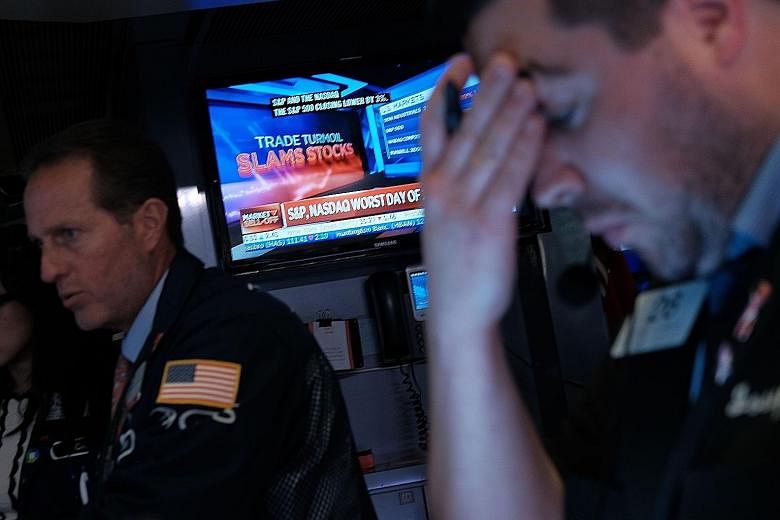WASHINGTON • For the average person, the headlines on the US-China trade war might seem theoretical. But if the dispute drags on, there are real-life ramifications for workers' wallets, including their savings, debt loads and spending power. Here's what it can mean for consumers:
POTENTIALLY HIGHER PRICES
Consumers may have missed the earlier rounds of tariffs on Chinese imports because they affected industrial materials and supplies that do not show up on most shopping lists. But the 10 per cent tariffs announced by the US last week will raise prices on just about everything Americans buy - from smartphones to toys to shoes.
The tariffs could cost the average American household another US$650 (S$900) a year, according to estimates by chief US financial economist Kathy Bostjancic from Oxford Economics. And the larger price tags could compel people to cut back on spending or make it tougher for them to pay their bills, she said.
MORE STOCK MARKET TURMOIL
The latest escalation in the trade war spooked investors on Monday, causing all three major US stock indexes to nose-dive.
Though Wall Street was in recovery mode on Tuesday, investment analysts said they expect the turbulence to continue until the United States and China resolve their differences. "What you're seeing is both sides building up leverage," said Mr Paul Christopher, head of global market strategy for Wells Fargo Investment Institute.
"We're not going to see the volatility go away until A, the markets get used to it, or B, we actually start to see some progress coming out of these negotiations."
LOWER INTEREST RATES
When the Federal Reserve lowered its benchmark interest rate on July 31, officials cited growing trade tensions as one of the main risks to the economy while also stating that the move was "not the beginning of a long series of rate cuts".
"If the trade situation gets worse, the Fed will cut rates by more in an attempt to limit the damage to the economy," said senior Americas economist Brian Rose at UBS Global Wealth Management.
Lower rates are a mixed bag for consumers, Ms Bostjancic said. On the one hand, mortgages and car loans become more affordable. On the other hand, people would earn less interest on their savings.
An extended trade war could be more bad news for the overall economy. Businesses might hold off from investing in new plants or hiring until a trade deal is in place.
Such a pullback could lead to slower job growth and, in turn, affect consumer spending, which is the biggest driver of the US economy.
WASHINGTON POST

